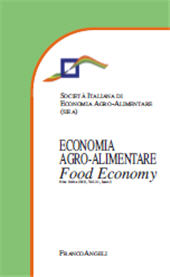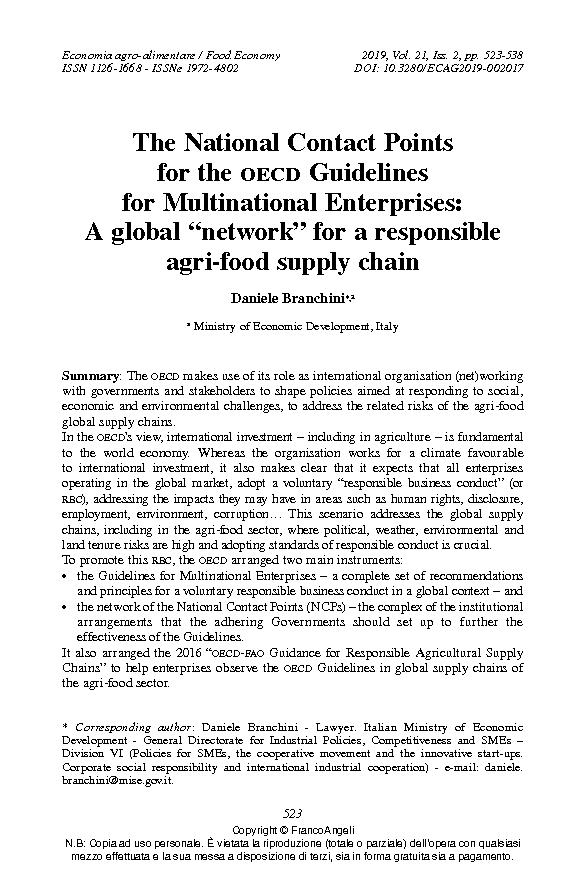The National Contact Points for the oecd Guidelines for Multinational Enterprises : a global network for a responsible agri-food supply chain
523-538 p.
The oecd makes use of its role as international organisation (net)working with governments and stakeholders to shape policies aimed at responding to social, economic and environmental challenges, to address the related risks of the agri-food global supply chains. In the oecd's view, international investment - including in agriculture - is fundamental to the world economy. Whereas the organisation works for a climate favourable to international investment, it also makes clear that it expects that all enterprises operating in the global market, adopt a voluntary "responsible business conduct" (or rbc), addressing the impacts they may have in areas such as human rights, disclosure, employment, environment, corruption" This scenario addresses the global supply chains, including in the agri-food sector, where political, weather, environmental and land tenure risks are high and adopting standards of responsible conduct is crucial. To promote this rbc, the oecd arranged two main instruments:
"the Guidelines for Multinational Enterprises - a complete set of recommendations and principles for a voluntary responsible business conduct in a global context - and - the network of the National Contact Points (NCPs) - the complex of the institutional arrangements that the adhering Governments should set up to further the effectiveness of the Guidelines. It also arranged the 2016 "oecd-fao Guidance for Responsible Agricultural Supply Chains" to help enterprises observe the oecd Guidelines in global supply chains of the agri-food sector. This note will focus on the innovative character of this system; on the NCPs' task to implement and "enforce" the oecd Guidelines (a soft law instrument), and on the ways the international NCPs' network can contribute to a responsible management of the agri-food supply chains. It will highlight the importance of the cooperation among NCPs, enterprises, governments, worker organisations and NGOs to encourage the widest adoption of the oecd Guidelines. In particular,
it will focus on the need for the NCPs of the different countries to co-operate, in search of a common understanding on common issues. Cooperation will be also presented as crucial for managing the non- judicial grievance mechanism entrusted to the NCPs to find a consensual settlement of disputes, arising from the alleged breach of the Guidelines, between one or more stakeholder(s) and one or more enterprise(s), also in the agri-food sector. [Publisher's text].
Is part of
Economia agro-alimentare : XXI, 2, 2019-
Articles from the same issue (available individually)
-
Information
ISSN: 1972-4802
DISCIPLINES
KEYWORDS
- Oecd Guidelines, National Contact Points, Responsible business conduct, due diligence, global supply chains



